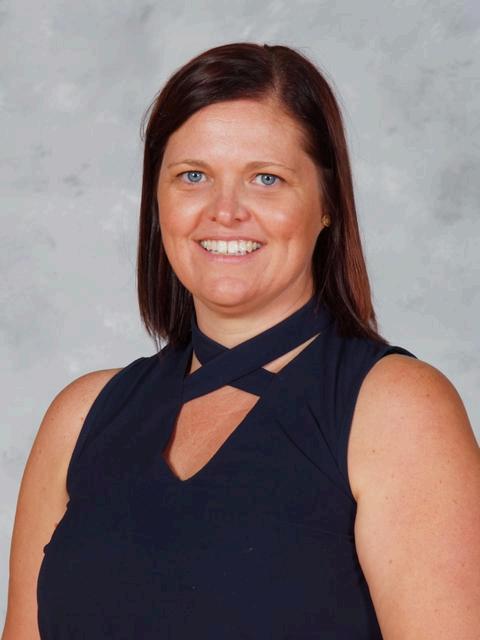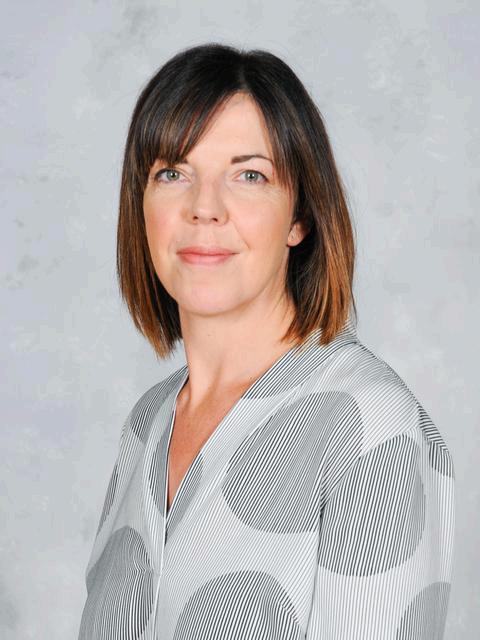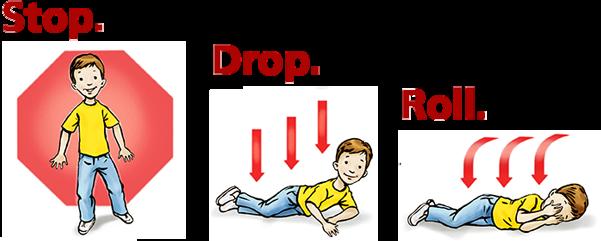Keeping our comm




Welcome to the October edition of our monthly safeguarding newsletter It’s a little earlier this month as we are breaking up for half term today Each month we provide an update containing reminders about how we approach safeguarding at Honywood as well as useful links to support families out of school - many links we share each month so they are easy to find for you If you have a question about safeguarding our hope is that our monthly bulletins will be able to provide the answer or at least some signposting to where you may get the answer Feel free to contact us anytime should you have any questions or concerns. This month we are drawing your attention to keeping safe at Halloween and Online Safety
● Learning Group Leader
● Cohort Leaders
● Pastoral Leaders
● Class teachers
● Learner Reception
● Learning Support Assistants
● Learner Wellbeing App on iPad


● Senior Leadership Team
● Mrs Nichols - Safeguarding Lead
● Mr Smith - Safeguarding Lead
● Mrs Hickford - Deputy Safeguarding Lead
● Mr Caygill - Deputy Safeguarding Lead
● Mr Saunders - Headteacher



Please refer to the Honywood Wellbeing app on your school iPad, link below https://sites google com/honywoodschool com/learnerwellbeing/home
If you need Wellbeing & Mental Health support out of school, please contact:
YOUNG MINDS - text YM to 85258, or https://youngminds.org.uk/find-help Kooth - your online mental wellbeing community https://wwwkooth com/ Child and Adolescent Mental Health Service 0300 300 1600 to get in touch directly. For the out of hours crisis support, please call the general NELFT switchboard on 0800 953 0222. and ask for the CAMHS Crisis Support Service
Childline 08001111
Weekly Bullying and Child on Child Abuse reporting form
All learners and parents receive a weekly email link and reminder that if they have any concerns about the behaviour of any learners in school that could be considered bullying and/or child on child abuse, they may report it using the following link: https://docs google com/forms/d/e/1FAIpQLSdwDem4Rzg8Bo8Aj0 cyFK6Eo2D Eqb6 PtZVDsD9 wucYmy3Q/viewform
If you have any questions about the form before completing it please feel free to email scaygill@honywoodschool.com Similarly if you have any feedback regarding the structure/questions of this form please do share this too as the form could evolve over the coming weeks with any feedback shared
Parents/Carers
For support and information please contact:
For information about support for children, young people and families please see the Essex County Council website
If you are a parent or carer, child or young person and you need support, you can phone 0345 603 7627 and ask for the Children's Line
Useful General Policies
Safeguarding Policy
https://www.honywoodschool.com/page/?title=SAFEGUARDING&pid=146
KCSIE September 2025
Keeping children safe in education 2025: part one information for all school and college staff
Responding to Harmful Sexual Behaviours Policy RESPONDING TO HARMFUL SEXUAL BEHAVIOURS POLICY
Halloween can be an exciting time of year for children, dressing up and going out after dark But, whilst Halloween is supposed to be spooky there are some horrors that families will want to avoid.
The Child Accident Prevention Trust (CAPT) have published their top tips to share with families for a safe Halloween they can remember for all the right reasons Please click here to take a look
So, here are our top tips for a safe Halloween that you can remember for all the right reasons
Many fancy dress costumes are not manufactured to the same safety standards as normal clothing, meaning they can ignite almost instantly and burn far faster That’s why it is crucial to ensure children wearing Halloween costumes are kept well away from naked flames and other heat sources at all times
Download a poster highlighting the risks
It may mean spending a bit more but buying from a reputable store or website will be safer Cheap costumes may not meet UK safety standards.

These labels don’t mean a costume won’t catch fire But it has been tested for fire safety so it should burn more slowly Also, The British Retail Consortium has introduced stricter fire safety tests for children’s dressing-up costumes. Look for a label that says: “This garment has undergone additional safety testing for flammability”
If children wear clothes under their dressing-up costumes, there is a layer of protection between the costume and their skin This can help protect their skin if their costume catches fire
Discover what to do in an emergency with burns first aid
Ahead of Halloween, make sure children know what to do if their clothes catch fire The instinct is to run So, encourage them to practice stopping, dropping to the ground, covering their face with their hands, and rolling over a few times to put out the flames.

[Image - National Fire Prevention Agency]
Candles and lit pumpkins create a fantastic spooky atmosphere but can be dangerous. Keep them well out of the path of trick or treaters and away from any Halloween decorations that might catch light
Remember not to put candles on a surface that may burn And, in all the excitement, don’t forget to blow them out when you’re done
You may want to switch to LED / flameless battery-powered candles to reduce the fire risk. But, be sure the battery compartment is secure. Many LED lights, and the remote controls for them, contain button batteries which can badly hurt or kill a small child if they swallow one and it gets stuck
Learn more about the dangers of button batteries
Visibility is important all year round However, after the clocks go back, it gets dark much earlier By Halloween it will be dusk by 5 o’clock, just when children are out trick or treating Reflective tape can make a fun addition to Halloween costumes and make children more visible to drivers at twilight, as it is picked up in car headlights. Fluorescent glow sticks and glow jewellery can make good costume accessories and can also help make children more visible to drivers If you’re going out earlier with little ones, then bright or fluorescent clothing is better for daytime visibility

Masks can make it harder for children to see or hear traffic So, save the special masks for indoors and use face paint for trick or treating Encourage children to put mobile phones away when they are out trick or treating and crossing roads. Instead of using the phone as a light, carry a torch. Children under 12 are best accompanied by an adult Agreeing a pre-planned route for children over 12 and having a way of contacting a trusted adult if they need to offers freedom with less risk
Visit our road safety hub for more tips
Carving pumpkins has become a great Halloween tradition. If your child isn’t old enough to handle a sharp knife safely there are plenty of ‘no-carve pumpkin’ ideas all over the internet Just do a quick search on Pinterest You will be amazed at the creativity

Lollipops, hard candy and mini eggs in particular can pose a serious choking risk. Plus, remember it’s best to avoid eating while walking or running, so you may want to save up all the treats to enjoy back at home
Learn more about choking prevention
Light-up decorations such as pumpkins, cauldrons, torches and wands are fantastic for creating a spooktactular atmosphere But many of these items are powered by button batteries which can badly hurt or kill a child if swallowed That’s why it’s so important when buying button battery-powered Halloween novelties that you check the battery compartment is secured with a screw or similar fastener to prevent children gaining access
Learn more about button battery safety
We hope you have a safe and spooktacular Halloween this half term!
How to spot the signs of exploitation, check device security settings and report concerns.
As we break for half term the risks of online abuse remain a threat which young people and parents/carers should be aware of and as it's spooky season there is the possibility that children may take their Halloween celebrations online. This could result in sharing frightening content and peer pressure to undertake harmful online challenges The addictive effects of technology could also impact mental health
Any child is at risk of being exploited - both boys and girls can be groomed online, with contact often starting on social media It is important to remember that exploitation is not the child’s fault, and they are never to blame
Young people do not differentiate the real world from the virtual world in the way that adults do Caregivers can create a supportive environment, where online safety is discussed regularly in the same way as road safety or stranger danger, enabling children to speak up about any concerns they may have. By taking an interest in what games they are playing and trying to understand their online world, parents and carers can initiate important conversations It’s also worthwhile double checking that devices have the correct parental controls, especially if they’re new
This can be done by:
● creating good internet habits
● limiting screen time
● avoiding devices at dinnertime/bedtime
● talking and showing an active interest in what children are doing online - let them share what they’re playing or looking at with you
The ESCB website has resources for parents, carers and professionals including podcasts, videos, how to report concerns, and information about spotting the signs of exploitation. Concerns about child exploitation can be reported anonymously via Crimestoppers 0800 555111 There is also a dedicated Essex Police Child Exploitation hotline - for parents, carers and members of the public to seek advice around concerns they may have about their own or other children with regards to criminal and sexual exploitation: 01245 452058
Online challenges being shared among young people on social media can be extremely dangerous In the following podcast @The2Johns are talking about the importance of being extra vigilant about online exploitation at this time of year https://www.podbean.com/ew/pb-2fqm6-105ee81
Did you know the number of children exploited online doubles between the ages of 11 and 12 years old? If your child is getting their first smartphone make sure you have the correct parental controls set up and are talking to them regularly about their online life
The internet is 24/7 and available everywhere – think about where else other than at home your child may be accessing the internet and make sure you keep talking to them about safe internet use https://escb.podbean.com/e/online-safety-parents-of-pre-teens/
Help your child navigate the online world by showing an interest in what they are doing online:
● What games do they play and who do they play with?
● What YouTubers do they watch?
● Who do they follow on Instagram/Snapchat?
● Be involved and join them in a game or watch YouTube with them, it’ll make starting conversations about online safety easier.
Young People - Did you know you can report a nude image or video of yourself? It can be scary and you may feel embarrassed, but there is help out there Search ‘Report Remove Childline’ to find out more.
Any young person could send an inappropriate pic Even your child If it happens, there are tools to report and remove these images. Also try to understand whether there is peer pressure or grooming involved and talk about how to enjoy the internet safely There is some great advice from the Essex Child and Family Wellbeing Service on how to have conversations with your child about online activity, setting boundaries and how to manage emotions and reactions to content seen online: https://youtu.be/JQUfZwKPs5A
Is your child into online gaming? Did you know strangers can contact your child especially on public or large servers and send inappropriate, mean or sexual content They could also groom a child by sending game currency and gifts within a game Find out more about online gaming and these new signs of exploitation.
https://wwwescb co uk/safeguarding-topics/online-safety/apps-games-and-social-media/
Did you know that social media algorithms, which help tailor our newsfeeds, can create ‘echo chambers’ where people only see information that supports their current beliefs and opinions? Help young people build critical thinking and digital literacy skills by asking:
● Why do they follow a certain influencer/content creator?
● What do they find interesting or entertaining?
● Are there people who might not like what that person is saying? Why might that be?
● What are the opposite views of that person?
● Who else do they follow that ‘balances’ this creator’s point of view?
With around 28% of children aged 12 to 15-years-old using TikTok as a news source (2022, Ofcom) it’s important to learn how to be critical online thinkers. Talk regularly about all content your child sees to make critical thinking a regular part of their digital life https://wwwescb co uk/onlinesafety
Social media algorithms tailor newsfeeds to only show information that supports an individual’s current beliefs and opinions Help young people build critical thinking skills by encouraging them to look for alternative views or sources of information
Did you know people can screenshot and share your child’s snaps or record their livestreams? @The2johns discuss why and how young people are drawn into taking and sharing inappropriate images They discuss how both parents and young people may be feeling as well as practical advice on getting photos removed:
https://escb.podbean.com/e/online-safety-youth-involved-sexual-images/
Young People - Would you know what to do if your friend told you about something they had seen online that worried them? Here are a few tips https://youtu.be/HTJFGSiy8qU
Young People - Sharing nudes is breaking the law, even of yourself Keeping nudes on your phone sent by others is also breaking the law If you’re worried you can talk to a teacher, school nurse, doctor, social worker (if you have one), police officer, youth worker or an anonymous helpline https://wwwescb co uk/safeguarding-topics/online-safety/im-a-young-person/
The adolescent brain is fascinating - it is a completely normal part of development for teenagers to want to take risks? Take a look at this video from The Training Effect which explains the teenage brain and how you can support your children to stay safe and make positive choices https://wwwyoutube com/watch?v=IVMHyTBpyKY
The impact of online bullying and the pressure from social media can be made worse at certain times of the year such as the school holidays - have a listen to @The2Johns talk about how parents and carers can create a relationship with their child that encourages two way conversation https://wwwpodbean com/ew/pb-e3bxs-1055b15
Just under half of those being investigated for exploiting others online are children and most are the same age as the victim If you’re worried your child might have been a victim our website has information about who to contact https://www.escb.co.uk/safeguarding-topics/online-safety/reporting-concerns/
Exam Stress. The following link covers a wide-range of tips to keep students mentally healthy. Supporting Your Child during Exam Time (Young Minds) Exam Time & Exam Stress | Parents Guide To Support Young Minds https://youngminds.org.uk/
MindEd is a free educational resource on children and young people's mental health for all adults: https://wwwminded org uk/
Safe and reliable advice about young people’s mental health, created by experts and parents together: https://wwwmindedforfamilies org uk/young-people
NHS Mental Health Charities directory: Mental health charities and organisations
Parent zone - 10 mental wellbeing apps for all the family: https://parentzone.org.uk/article/10-mental-wellbeing-apps-all-family
Headstogether - Changing the conversation on mental health: https://wwwheadstogetherorg uk
The Mix - Essential support for under 25s: https://www.themix.org.uk/
You Tube series by Oxford Health: https://www.youtube.com/playlist?list=PLKw7kjGJdcXCiene7r3m8qYSN2T8Vxb1K
This animated series is for parents of neurodiverse children and young people The experiences portrayed in the animations reflect the real-life experiences of children, young people and families who use the service. Real-life practical strategies are mentioned in an animated story format to help parents of children with ADHD or autism manage common experiences they face at home
Autism Anglia: https://wwwautism-anglia org uk
An independent charity that provides support to autistic children, adults and families in east Anglia.
SNAP wwwsnapcharityorg
A voluntary organisation based in Brentwood offering support to parents and carers of children with any special need or disability
The Maze Group www.themazegroup.co.uk
Based in Ipswich this support group offers courses to help parents understand their child’s diagnosis and their additional needs
Childhood bereavement network
https://childhoodbereavementnetwork org uk/if-you-need-help-around-death/bereavedchildren-and-families/resources-families
Resources that may help you or your family with a bereavement
Winstons Wish
https://www.winstonswish.org/supporting-you/supporting-a-bereaved-child/ Winston’s Wish offer a bereavement service by way of advice, guidance and bereavement support to children, young people, and families before and after the death of a parent, sibling or other important person. On their website you will find guidance on topics including, support for grief and loss.
Helping Your Anxious Child – Ronald Rapee
Breaking Free from OCD: A CBT Guide for Young People and Their Families – Jo Derisley
Parenting a Child with Emotional Behavioural Difficulties – Daniel Hughes Depression: A Teen’s Guide to Survive and Thrive – Jacqueline Toner Claire Freeland
https://www.socialworkerstoolbox.com/parents-guide-youth-violence-knife-crime-gangs/ https://wwwwestminstergovuk/sites/default/files/advice for parents and guardians about gangs pdf
This May Help
https://thismayhelp me/
This May Help is a website that has been created to support parents and carers with concerns about their child’s mental health The subjects covered on this website have been chosen by families and young people who have gone through their own mental health challenges What helped them may also help you
Young Minds
https://wwwyoungminds org uk/parent/parents-helpline-and-webchat/ Call our Parents Helpline for detailed advice, emotional support and signposting about a child or young person up to the age of 25
NHS Website
https://www.nhs.uk/mental-health/children-and-young-adults/advice-for-parents/
The NHS website has information on many different challenges faced by young people Find advice and support for parents who have children or teenagers with mental health Problems
Anna Freud
https://wwwannafreud org/parents-and-carers/child-in-mind/
Anna Freud Centre produced a series of expert podcasts to help parents understand and manage child and family mental health problems
The series, Child in Mind, is presented by BBC Radio 4 presenter Claudia Hammond In each 20-minute episode, she discusses an important issue in child and family mental health with an expert and a young person or parent.
Papyrus
https://www.papyrus-uk.org/wp-content/uploads/2020/08/Supporting-Your-Child-A-Guidefor-Parents pdf
This guide has been created following discussions with parents who have experience of supporting a young person struggling with their mental health. The aim of this guide is to provide information and guidance and to help parents cope with a young person who is struggling with thoughts of suicide To reassure them that they are not alone
Oxford health
https://wwwoxfordhealth nhs uk/wp-content/uploads/2016/09/copy of coping-with-selfharm-brochure final copyright pdf
This guide was developed from talking to parents and carers of young people and is aimed at helping parents, carers, other family members and friends cope when a young person is self-harming It includes information on the nature and causes of self-harm, how to support
a young person when facing this problem and what help is available
Ministry of Parenting
https://wwwtheministryofparenting com/wp-content/uploads/2019/12/10-Ways-toSpend-Quality-Time-With-Your-Teen- pdf? ga=2 80853471 917799071 16763773861296894209.1676377386
It can be difficult to find ways to give teens positive attention Now that they’ve outgrown a lot of childhood activities, it may be more difficult to find family activities they are interested in Here are 10 ways to create quality time to spend with your teen, even if it’s just a few minutes each day.
All Sorts Youth https://www.allsortsyouth.org.uk/what-we-do/faq-for-parents-carers
Allsorts Family Support Service emerged in 2013 in response to the need for parents/carers of children and young people who are Lesbian, Gay, Bisexual, Transgender or exploring their sexual orientation and/or gender identity (LGBT+), to connect and provide each other with support, community and friendship They also have a FAQs for Parents/Carers to help advice and gain understanding and insight
https://www.gov.uk/find-driving-schools-and-lessons (all instructors on the list will have had a DBS check and passed all the qualification tests to become an instructor) https://wwwgovuk/complain-about-a-driving-instructor
Parent zone - County Lines: https://parentinfo org/article/county-lines-what-is-it-and-who-is-at-risk?
Parent zone - Sleep Advice: https://parentzone org uk/article/how-sleep-easy-during-global-pandemic
Parent line Family Support: Parentline family support and bullying helpline
Domestic Abuse support: #ReachIn
Please see the key contact list below to support you to address any concerns.
Leadership Team
Mr Munro Deputy Headteacher jmunro@honywoodschool.com
Mr Caygill Deputy Headteacher scaygill@honywoodschool com
Mrs Hickford Deputy Headteacher jhickford@honywoodschool com
Mrs Bansropun Assistant Head abansropun@honywoodschool.com
Mr Smith Assistant Head dsmith@honywoodschool com
Mr Williams Assistant Head jwilliams@honywoodschool com
Mr Gribben Associate Assistant Head tgribben@honywoodschool.com
Mr Scott Associate Assistant Head dscott@honywoodschool com
Safeguarding, welfare and support team
Mrs Nichols Safeguarding Officer knichols@honywoodschool com
Mr Smith Safeguarding Officer dsmith@honywoodschool com
Mr Scott Attendance Concerns dscott@honywoodschool.com
Mrs Loydall Medical concerns medical@honywoodschool.com
Cohort Leaders
Cohort 7 Ms Ward tward@honywoodschool com
Cohort 8 Ms Martin amartin@honywoodschool com
Cohort 9 Mrs Borella lborella@honywoodschool com
Cohort 10 Mrs Reece ereece@honywoodschool.com
Cohort 11 Mr Briggs dbriggs@honywoodschool com
SEND team
Mrs Vaughan SENCO cvaughan@honywoodschool com
Mr Wood Deputy SENCO (Autism Hub)mwood@honywoodschool com